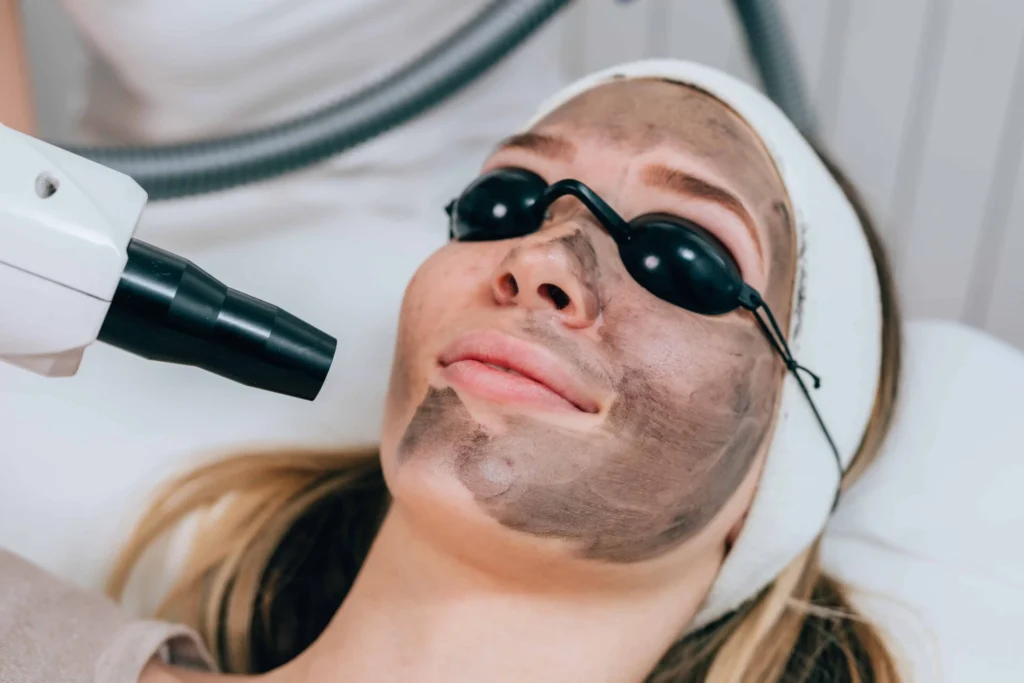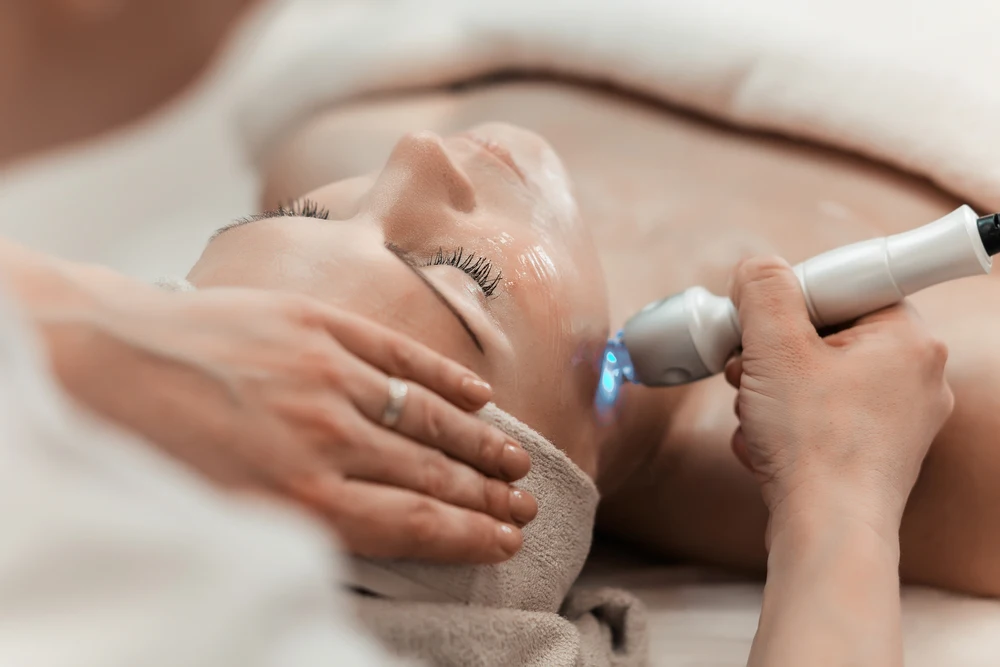- Introduction
- What is Laser Therapy?
- Types of Laser Treatments for Skin
- How Does Laser Treatment Work?
- Benefits of Laser Treatment for Skin Rejuvenation
- Skin Texture Improvement
- Reduction of Scars and Blemishes
- Minimized Fine Lines and Wrinkles
- Preparing for Your Laser Treatment
- Choosing the Right Type of Laser
- Pre-Treatment Care and Considerations
- Discussing Allergies and Concerns with Your Specialist
- Conclusion on Laser Treatment for Skin
Laser treatment for skin
Introduction
Laser treatments have become increasingly popular as a highly effective method for skin care and rejuvenation. This advanced therapy utilizes concentrated beams of light to target a range of skin concerns, providing a non-invasive solution to enhance skin appearance. From reducing acne scars and wrinkles to addressing hyperpigmentation and other imperfections, laser treatments leave the skin looking revitalized and refreshed.
Among these, carbon laser treatment stands out for its ability to deeply cleanse and exfoliate the skin. Using a carbon mask and laser energy, this treatment removes oil, dirt, and dead skin cells, making it ideal for combating acne, reducing pore size, and achieving a smoother, brighter complexion.
With minimal downtime and tailored options like carbon laser therapy, laser treatments offer a convenient and versatile solution for those seeking youthful, glowing, and healthy skin.

What is Laser Therapy?
Laser therapy is a non-invasive treatment that uses focused light to interact with the skin. The term “laser” stands for Light Amplification by Stimulated Emission of Radiation. This light is a concentrated, intense beam that targets specific skin issues with precision. Unlike traditional surgical methods, laser therapy offers the advantage of focusing on areas without damaging surrounding tissue, making it a popular choice in cosmetic dermatology.
The role of laser therapy in skin care has amplified as it addresses a wide array of skin concerns. Whether it’s reducing signs of aging or combating acne scars, laser treatments are designed to provide noticeable results with minimal downtime.
Types of Laser Treatments for Skin
Laser treatments are not a one-size-fits-all solution. Various types of laser treatments are available to target different skin problems. Here’s a closer look at some common types:
Ablative Lasers: These are more aggressive and work by removing the outer layers of the skin. Common types of ablative lasers include CO2 lasers and Erbium lasers. They are mainly used for skin resurfacing, treating deep wrinkles, scars, and warts.
Non-Ablative Lasers: These penetrate deeper into the skin without removing its top layers, encouraging collagen production. Non-ablative lasers are generally used to treat rosacea, redness, and minor scars. They are less aggressive compared to ablative lasers, resulting in less recovery time.
Fractional Lasers: As the name suggests, fractional lasers treat a “fraction” of the skin. These lasers deliver microscopic columns of light to target damaged skin while leaving the surrounding skin untouched. This type of laser is useful for correcting small imperfections, promoting quicker recovery.
Pulsed-Dye Lasers (PDL): PDLs are specifically used to reduce redness, rosacea, broken capillaries, and other vascular conditions by targeting the blood vessels in the skin.
It’s important to consult with a dermatologist to determine the best laser treatment for your skin type and specific concerns.
How Does Laser Treatment Work?
Laser treatment works by using the heat from the laser to damage the layers of skin that need treatment. This targeted damage encourages your body’s healing process, which leads to the rejuvenation and smoothening of skin. Here’s a look at the laser treatment process:
1. Preparation: On the day of the procedure, a topical anesthetic may be applied to the treatment area to minimize discomfort during the session.
2. Treatment: The laser device is passed over the skin, emitting precise beams of concentrated light. Different lasers work at various wavelengths to penetrate the skin at different depths.
3. Laser-Tissue Interaction: The light energy is absorbed by the targeted cells, either vaporizing them (in ablative treatments) or stimulating collagen production (in non-ablative treatments).
4. Post-Treatment Care: After treatment, the healing process involves shedding of the old skin to make way for new skin cells. You may experience temporary redness or swelling, but this typically subsides within days to a week.
5. Recovery and Results: Depending on the type and intensity of the laser treatment, natural healing and freshening of the skin will gradually take place, revealing smoother and more youthful skin over time.
The adaptability of laser treatments allows for a personalized approach, catering to individual skin needs and concerns.
Benefits of Laser Treatment for Skin Rejuvenation

Skin Texture Improvement
Laser treatments have shown remarkable effectiveness in improving skin texture. With age, skin loses its natural glow and evenness, developing rough patches and dullness. Laser therapy stimulates skin renewal, enhancing texture by:
Removing Dead Skin Cells: Laser treatments can effectively slough away dead skin cells from the surface, revealing healthier-looking skin beneath.
Promoting Collagen Growth: The heat from the laser encourages collagen production, the protein responsible for skin structure and firmness. Increased collagen results in smoother skin texture and reduced skin roughness.
Addressing Pores: Enlarged pores can lead to an uneven appearance. By tightening skin and removing impurities, lasers help minimize the visibility of pores.
These effects contribute to skin that not only feels smoother but appears more radiant.
Reduction of Scars and Blemishes
Scars and blemishes can detract from the overall appearance of the skin, affecting confidence and self-esteem. Laser treatment is well-regarded for its ability to reduce the appearance of these imperfections:
Acne Scars: Fractional and non-ablative lasers are often used in the treatment of acne scars, as they can target specific areas to encourage repair and reduce scar visibility effectively.
Surgical Scars: Many who undergo surgeries find solace in laser therapy’s ability to lessen scar appearance, thanks to its precise targeting and quick recovery.
Pigmentation and Blemishes: Laser therapy can address sunspots, hyperpigmentation, and other forms of discoloration, breaking down dark pigments in the skin for a more even complexion.
Besides tackling old blemishes, laser treatments can prevent new scars and blemishes from forming, maintaining a clear skin structure.
Minimized Fine Lines and Wrinkles
Fighting the visible signs of aging is a major reason people choose laser treatments. Fine lines and wrinkles become more pronounced with age, and laser therapy offers a tactical approach to reducing their appearance by:
Stimulating Younger Skin Production: Through non-invasive means, lasers stimulate the upper dermis to produce new cell growth. This can help to fill in lines as new, healthy skin emerges.
Targeting Dermal Layers: By working on both the superficial and deeper skin layers, lasers can reduce lines around sensitive areas such as the mouth and eyes.
Lasting Effects: While results can be seen as soon as days after treatment, the redevelopment of collagen continues over months. Many individuals report sustained improvement in skin elasticity and smoothness.
With clinical precision, laser therapy provides a reliable way to achieve a more youthful appearance without the need for surgical interventions.
Laser treatments have revolutionized the approach to skin care by offering customizable solutions for enhancing skin health and appearance. From improving texture to diminishing scars, these treatments provide effective results with minimal downtime, making them a favored choice for many individuals seeking skin rejuvenation. Always consult with a skincare professional to explore which laser treatments may be best for your skin’s unique needs and goals.
Preparing for Your Laser Treatment
Laser treatment for skin can be a highly effective way to address various skin concerns, but proper preparation is key to ensuring the best possible results. Before diving into any laser therapy, it’s essential to take certain steps to prepare your skin and set the stage for a successful treatment process. Here’s what you need to know about preparing for your laser treatment.
Choosing the Right Type of Laser
Choosing the right type of laser treatment for your skin concern is essential, as laser treatments are not one-size-fits-all. Different lasers are designed to target specific skin issues effectively. Below are the common types of laser treatments and their uses:
Ablative Lasers: These include CO2 and Erbium YAG lasers, which remove the outer layers of the skin for deep resurfacing. They are ideal for treating deep scars, wrinkles, and significant skin damage.
Non-Ablative Lasers: Examples like pulsed dye and fractional lasers focus on addressing concerns such as rosacea, broken capillaries, and acne scars without removing the skin’s surface layer.
Fractional Lasers: Combining the benefits of ablative and non-ablative lasers, fractional lasers treat a “fraction” of the skin at a time. This results in quicker recovery while effectively targeting fine lines, deep wrinkles, and other skin imperfections.
Carbon Laser Treatment: Known for its deep cleansing and exfoliating properties, this treatment uses a carbon mask and a laser to penetrate the skin, removing oil, dirt, and dead skin cells. It’s excellent for acne, enlarged pores, and achieving smoother, brighter skin.
To choose the most suitable treatment for your needs, consult with a dermatologist. They can assess your skin type and concerns, offering tailored advice to ensure optimal results and safety.
Pre-Treatment Care and Considerations
Once you’ve chosen the right type of laser treatment, taking care of your skin in the weeks leading up to the session can make a huge difference. Here are some pre-treatment care tips and considerations to keep in mind:
Avoid Sun Exposure: Stay out of the sun and avoid tanning beds as much as possible. UV exposure can increase the risk of complications and make your skin more sensitive to laser energy.
Cease Use of Certain Skincare Products: In the days leading up to your appointment, stop using products that contain retinoids, glycolic acid, and other strong ingredients that might increase skin sensitivity.
Hydrate Your Skin: Ensure you’re drinking plenty of water and using a good moisturizer to keep your skin hydrated. Well-hydrated skin responds better to laser treatment.
Quit Smoking: Smoking can impede the healing process. It’s advised to stop smoking at least a week before and after your treatment.
Arrange For Post-Treatment Care: Some redness and swelling are common post-treatment. Plan ahead by taking time off work, if necessary, and have gentle skincare products available for aftercare.
Discussing Allergies and Concerns with Your Specialist
Open communication with your laser treatment specialist is crucial for a successful and safe procedure. Before undergoing any laser treatment, make sure you have a comprehensive discussion with your specialist about your health and any apprehensions you might have:
Alleviating Concerns: Voice any fears about the procedure, side effects, or recovery time. Your specialist can provide reassurance and detailed explanations of what to expect.
Allergies and Sensitivities: Disclose any allergies or skin sensitivities you have, especially to topical products or medications. This information can help your specialist choose suitable products for use before, during, and after treatment.
Medical History: Mention any medical conditions or medications you’re currently taking, as these could potentially impact the effectiveness of the laser treatment or increase risks.
Setting Expectations: Make sure you have a clear understanding of the results you can realistically expect from the laser treatment. Unreasonable expectations can lead to dissatisfaction, so aligning your outlook with what can be achieved is essential.
By carefully choosing the right type of laser, preparing your skin, and discussing your concerns with a specialist, you can ensure that your laser treatment for skin is as effective and safe as possible. With the right preparation, laser therapy can offer significant improvements, leading to rejuvenated and youthful-looking skin.
Conclusion on Laser Treatment for Skin
In conclusion, laser treatment offers effective solutions for a variety of skin concerns. Whether you’re dealing with scars, uneven skin tone, or signs of aging, laser therapy could help rejuvenate your skin and restore your confidence. It’s important to consult with a skincare specialist to determine the most suitable treatment for your needs. Remember, proper aftercare plays a crucial role in achieving optimal results, so it’s essential to follow your dermatologist’s instructions carefully.